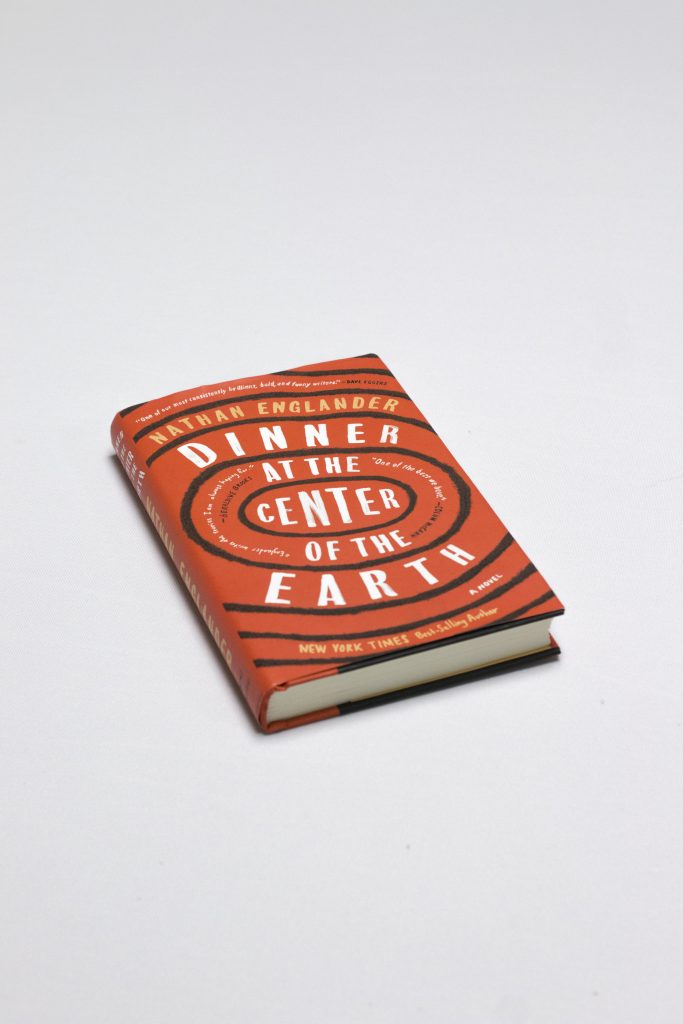
“Dinner at the Center of the Earth,” written by Nathan Englander, ‘91, is a novel about the secondary characters in a story — the ones who appear to deliver coffee or to drive the getaway car — not the ones about whom great epics are written. And that’s what makes it compelling.
The novel, released Sept. 5, is written in chapters alternating between characters, which makes for a disjointed read. But this structure isn’t so bad in a novel where the characters themselves are the highlight, as opposed to the plot. Broadly, the book explores the Israeli-Palestinian conflict, telling the story of Z, also known as Joshua, who starts a friendship with Farid while they are both living in Berlin. Z infiltrates governments under the guise of selling refurbished technological hardware, something Farid discovers after that information is used to blow up a Palestinian neighborhood where his brother lives.
This sets off a string of events across Europe and the Middle East, replete with a romantic subplot, and ends with Z imprisoned and guarded by a character called only by his action — “The Guard.” This guard is the son of Ruthi, the handler, secretary and right-hand woman to “The General,” who is responsible for some of Israel’s most prosperous times, and also Z’s erasure from the wider world by placing him in an anonymous cell.
While the structure of the novel makes the story hard to follow at times, Englander’s characterization is the thread which ties it all together. Englander takes the characters that might fall below the surface were the novel a news story and makes them central to the novel. Rather than wax poetic on “The Guard,” Englander uses him as the pivot point for the novel, but not its focus. Instead, we see the characters in his network develop beyond sidekicks. Rather than simply mentioning them in passing, Englander develops the supporting characters into complex beings with stories of their own.
This is Englander’s second novel. The first, “The Ministry of Special Cases,” was published in 2007. Like his latest work, the first novel explores the telescoping grief experienced by a family and its homeland. Englander has also written short story collections, including “What We Talk About When We Talk About Anne Frank,” which earned him a place among the finalists for the 2013 Pulitzer Prize for fiction.
Englander returned to Binghamton University last spring to serve as commencement speaker for the Harpur College of Arts and Sciences’ second ceremony, where he received an honorary doctor of letters degree.
Though in a 2013 interview with Pipe Dream, Englander claimed that he has “never once sat down to write a Jewish story,” “Dinner at the Center of the Earth” seems to suggest he may not make that same comment today. In the aftermath of the Charlottesville riots and Heather Heyer’s murder in August, he penned an op-ed for The New York Times, titled “What Jewish Children Learned from Charlottesville.” In that piece, he wrote of his own childhood as a religious Jew on Long Island, and how his own experiences of anti-Semitism have informed his identity. In the same way, they have informed the story in “Dinner at the Center of the Earth.” The novel is about Jewish people, to be sure, but more than that, it is about operating in a world of prejudice and conflict today.


